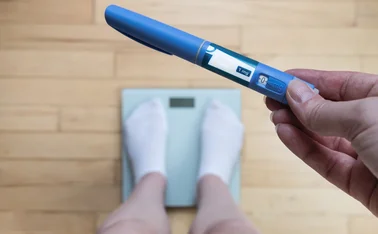
Industry welcomes government's position on driverless cars

The industry has welcomed the government’s response to last year’s driverless car consultation.
The Ministry for Transport said it will extend compulsory motor vehicle insurance, creating a single insurer model to cover victims when a driverless vehicle causes a crash in automated mode.
Ben Howarth, Association of British Insurers' senior policy adviser on motor and liability, said: "It's good to see the government adopting the insurance industry's proposals to keep motor insurance as straightforward as possible for customers in a world of increasingly automated vehicles.
"We look forward to seeing further details in the Modern Transport Bill. In the meantime we will be continuing our productive relationship with the government's Centre for Connected and Autonomous Vehicles, helping officials work through the various challenges created by this evolving technology."
Howarth added that automated vehicles have the potential to "revolutionise transport systems" and dramatically improve road safety, but added that insurance systems must be developed in parallel to give motorists confidence in using them.
The British Insurance Brokers' Association's executive director Graeme Trudgill told Post: "We will be going over the government's response with our motor panel, but on first look we largely support the direction of travel in having one policy to cover all risk."
Jonathan Dye, head of motor insurance, Allianz Insurance, added: "We are still considering the detail in the department's response but it seems that a number of key uncertainties relating to liability when the vehicle is in autonomous mode have now been clarified and are in line with the industry's preferred outcome."
Neil Sugarman, president of the Association of Personal Injury Lawyers said: "Apil welcomes the government's response to this consultation. We said in our response that Part VI of the Road Traffic Act should be extended and amended to make it clear that fully or partially automated cars are covered by compulsory motor insurance.
"Under the Government's original proposals in its consultation, drivers would have needed additional insurance policies to cover them in automated vehicles. People in incidents with automated vehicles should be able to bring a claim under their car insurance policy.
"We also welcome particularly the decision that it will be up to the insurer to recover against the manufacturer of the vehicle under existing common law and product liability law, rather than the government's original proposal that drivers would need a separate product liability policy to bring their claims against manufacturers under the Consumer Protection Act 1987.
"Product liability law can be complex and requires substantial resources to investigate and challenge the defences brought. Insurers are far better placed to bring a claim against the manufacturer of the vehicle than the claimant."
Deborah Newberry, head of public affairs at Kennedys, says: "It is clear from the government response that policymakers remain fully committed to ensuring the UK's place at the forefront of the driverless cars revolution and we applaud their sensible "rolling reform" approach given the complexities involved.
"It is heartening to see that the government has received a positive response from automotive, road safety, legal and insurance bodies on its rolling programme of reform and focus on near to market technologies, which will mean that work in these areas will continue apace.
"Of course, there is still a great deal of work to do around clarifying rules and regulations relating to the legislative and insurance framework, to include the Highway Code and international regulation.
"We eagerly await the government's consultations on specific proposals for amendment and expect, as stated, the focus of issues to include data sharing and road safety.
Michael Lloyd, the AA's director of insurance said: "The proposals reflect the AA's view that compulsory insurance should be extended to driverless cars.
"This single insurer model will ensure that in the event of a collision, the not-at-fault party will be properly compensated in the way that motor insurance works now.
"Many questions remain to be resolved but this principle will allow for smooth handling of claims immediately after a collision and the question of liability can be sorted out in the background."
Only users who have a paid subscription or are part of a corporate subscription are able to print or copy content.
To access these options, along with all other subscription benefits, please contact info@postonline.co.uk or view our subscription options here: http://subscriptions.postonline.co.uk/subscribe
You are currently unable to print this content. Please contact info@postonline.co.uk to find out more.
You are currently unable to copy this content. Please contact info@postonline.co.uk to find out more.
Copyright Infopro Digital Limited. All rights reserved.
As outlined in our terms and conditions, https://www.infopro-digital.com/terms-and-conditions/subscriptions/ (point 2.4), printing is limited to a single copy.
If you would like to purchase additional rights please email info@postonline.co.uk
Copyright Infopro Digital Limited. All rights reserved.
You may share this content using our article tools. As outlined in our terms and conditions, https://www.infopro-digital.com/terms-and-conditions/subscriptions/ (clause 2.4), an Authorised User may only make one copy of the materials for their own personal use. You must also comply with the restrictions in clause 2.5.
If you would like to purchase additional rights please email info@postonline.co.uk








